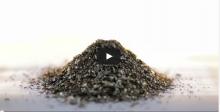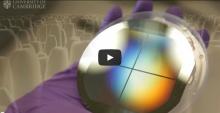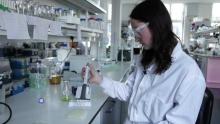|
Bad Air Day? Low-cost pollution detectors to tackle air quality |
|
|---|---|
|
A new generation of pollution monitors developed by the University of Cambridge, together with academic and industrial partners, could help gather the evidence essential to tackle poor air quality. |
|
|
|
Technology developed in Cambridge at the Department of Chemical Engineering and Biotechnology lies at the heart of a commercial process that can turn toothpaste tubes and drinks pouches into both aluminium and fuel in just three minutes. Now, in a commercial-scale plant, built and operated by Cambridge spin-out Enval Limited, up to 2,000 tonnes of packaging are recycled a year – roughly the amount handled by regional waste handlers – and it generates enough energy to run itself. |
|
Out of the red and into the blue: making the LED revolution cost-effective |
|
|---|---|
|
Professor Sir Colin Humphreys and his team in the University of Cambridge’s Department of Materials Science and Metallurgy have developed a way of growing a remarkable man-made material – gallium nitride (GaN) – which is being used by British manufacturer Plessey Semiconductors to make light-emitting diodes for home lighting. |
|
 |
Three academics look at wind power, carbon capture and storage (CCS) and material efficiency in this film: The Future of Energy? |






